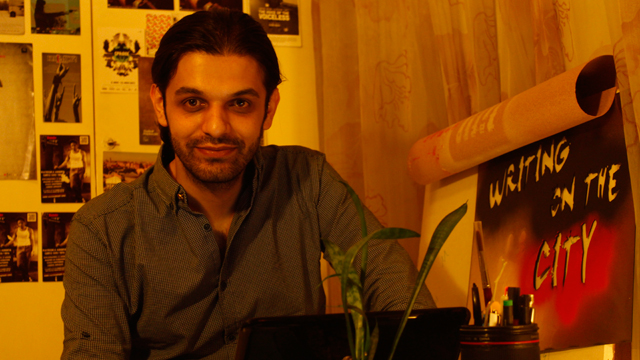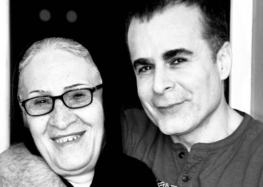Iranian Kurdish Filmmaker Sentenced to 223 Lashes and One Year in Prison

Keyvan Karimi, an Iranian Kurdish documentary filmmaker, has been sentenced to 223 lashes and one year in prison for “insulting the sacred.”
Karimi’s initial six-year prison sentence by Judge Mohammad Moghisseh in October 2015 has been reduced by an Appeals Court to 12 months in prison and a five-year suspended prison term.
Karimi, 30, was also fined 20 million Iranian rials or approximately $700.
A source close to Karimi told the International Campaign for Human Rights in Iran that Karimi will be forced to endure 223 lashes because the Appeals Court upheld the punishment for the charge of “having illegitimate relations by kissing the face and shaking hands” with a woman who is not a relative.
The United Nations has declared lashing a cruel and inhuman punishment tantamount to torture.
Karimi had been accused of denigrating religious values in his film, entitled Neveshtan Rooy-e Shahr (Writing on the City), about graffiti in Tehran. Some of the scenes in the film relate to the protests that followed the disputed 2009 presidential election in Iran.
“The producer of this film is Tehran University,” a source told the Campaign in October 2015. “It has footage from the archives of various institutions such as the Martyrs Foundation, the Islamic Revolution Foundation, and the Center for Islamic Studies.”
“It is the scenes from the Green Movement which seem to have caused some sensitivity,” said the source.
The Green Movement rose out of the peaceful protests against the widely disputed results of the 2009 presidential election in Iran. The movement is still a highly sensitive subject in Iran, referred to by hardliners as “the sedition.”
In his defense he argued that he had not insulted Islam and even if he had, his film was never released to the public.
“Karimi told the judges that his film has never been screened nor distributed. Therefore, if no one has seen it there can be no grounds for the charge of insult,” the source told the Campaign.
The Appeals Court hearing was presided by Judges Babaee and Pourarab and attended by representatives of the hardline Revolutionary Guards’ Intelligence Organization as well as a representative of the Tehran Prosecutor, according to the source.
Karimi’s Kurdish and Sunni background may have contributed to his harsh sentence. Iran’s Kurdish ethnic minority and Sunni Muslim religious minority are subjected to significant discrimination and persecution.
In an October interview with the Campaign, Karimi’s lawyer, Amir Raeesian, said even though the indictment alleged that Karimi had insulted sacred values in his film, the prosecution never pointed out which shots were allegedly insulting.
In 2012 Karimi received a Special Mention at the Civita Film Festival in Italy for his documentary, Marz-e Shekasteh (Broken Border).






